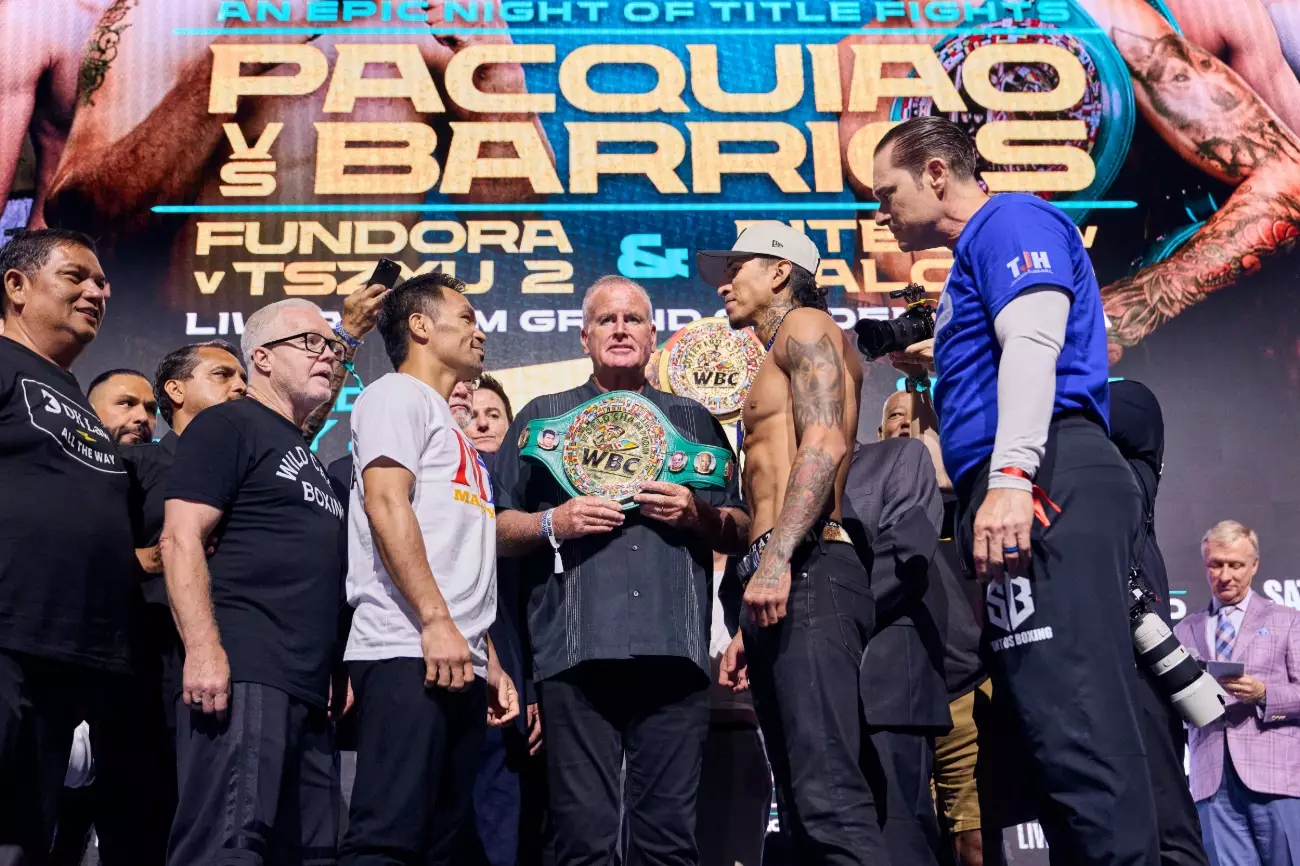Manny Pacquiao, a name synonymous with boxing greatness, has re-entered the spotlight after a four-year hiatus. At 46, many would expect him to fade quietly into retirement, but Pacquiao’s decision to step back into the ring signals a different narrative—one driven by unyielding passion and an insatiable desire to compete. His recent weigh-in at 146.8 pounds, just slightly above his opponent Mario Barrios at 146.2 pounds, sets the stage for an intriguing clash in Las Vegas. This fight isn’t merely about the bout itself; it’s a testament to Pacquiao’s resilience and his willingness to defy the aging process in pursuit of boxing glory once again.
The Motivations Behind the Comeback
Pacquiao’s motivations are complex. While some critics argue that his return is fueled by financial incentives—after all, the reported $12.6 million payday underscores the commercial appeal—others believe it’s driven by an unquenchable fighting spirit. Pacquiao himself claims to be rejuvenated and hungry for victory, emphasizing his deep-rooted love for the sport. However, beneath this passion lies a controversial aspect: the risk of tarnishing his legacy with a potentially loss-filled comeback. By skipping traditional build-ups and ranking fights, Pacquiao risks entering the ring against a spry, dangerous opponent like Barrios without adequate preparation or tune-up bouts, which are typically vital for aging fighters attempting to reclaim their former glory.
The Dynamics of the Matchup
Barrios enters the fight with a youth advantage and recent form that makes him a formidable obstacle. As the reigning WBC welterweight champion, he views this bout as just another title defense—an attitude that raises questions about whether he fully recognizes Pacquiao’s legendary status or underestimates the veteran’s experience. Yet, the actual fight might unfold differently. Barrios’ youth and power give him a fighting chance to end Pacquiao’s career definitively. But history suggests that judges often favor the name and reputation of the legendary boxer, especially in high-profile bouts, complicating external expectations about the outcome.
The Risks and Rewards of Pacquiao’s Strategy
From a strategic perspective, Pacquiao’s decision to forego traditional preparation and jump straight into a title fight appears reckless. It exemplifies a desire to capitalize financially on his name rather than earn an established title shot more organically. His previous defeat against Ugas in 2021 exposed vulnerabilities—he looked notably elderly and out of shape in that fight. Four years later, without meaningful tune-ups, his ring rust and aging body could prove insurmountable challenges. Yet, Pacquiao’s bravado indicates he’s willing to accept these risks for the chance to etch his name again in the history books. The question remains whether this gamble will pay off or hasten the final chapter of his once-glorious career.
The Coming Reality
In the end, Pacquiao’s return is a calculated gamble, deeply rooted in both love for boxing and the allure of a lucrative payday. His career has been defined by turning setbacks into inspirational comebacks, but history warns that a reckless pursuit of glory late in life often results in regrets rather than accolades. The fight against Barrios is more than a contest of skill; it’s a reflection of Pacquiao’s legacy—whether he can defy the odds or whether he’s rushing toward an inevitable, painful conclusion. As fans, analysts, and critics scrutinize every move, one thing is certain—Pacquiao’s daring attempt underscores the undeniable truth: in boxing, passion can sometimes overshadow prudence, and that makes his story both inspiring and perilous.

